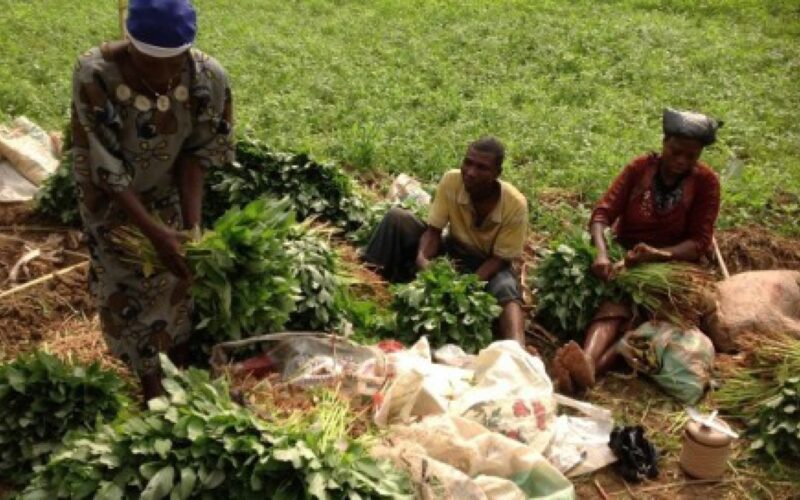
The Commonwealth of Learning (COL) recently partnered with the Obafemi Awolowo University and the Agricultural and Rural Management Training Institute, Nigeria, to organise training on digital agriculture for vegetable farmers, with a focus on women farmers.
Digital transformation in agriculture can bring about several benefits. It can help farmers improve access to information, training markets, and increasing yields. It also can lead to fair pay for what farmers produce while reducing food loss and waste.
Vegetables, as significant sources of micro-nutrients for humans, are instrumental to achieving national food and nutrition security, good health and well-being. When digital agriculture is applied to vegetable production, processing and marketing, it can improve food and nutrition security, especially in developing countries. For this reason, the workshop centred on climate-smart vegetable production, processing and marketing, particularly tapping on the strength of digital transformation. The workshop also engendered discussions on aspects of policies that encourage and sustain open and distance learning and digital agriculture.
Participants were exposed to climate-smart agricultural strategies that can be adopted at different stages of vegetable cultivation in adaptation to the effects of climate change, such as drought, dry spells, flooding, extreme temperatures, strong winds, pest and disease attacks, among other catastrophes.
The workshop sessions were delivered using learner-centred training methodologies – such as case studies, farm practical demonstrations, and group exercises – which helped to achieve a high degree of interaction among workshop stakeholders. A total of 108 participants, predominantly drawn from Nigeria’s Osun, Oyo and Kwara states, attended the workshop. Participants confirmed its relevance and importance and promised to take the lessons learned to other vegetable farmers in their communities.
As part of the downstream activity following the workshop, learning for all farmers will be reinforced with real-time, short and precise messaging, which will be in text, audio, and video formats, addressing various farming tasks to be carried out today and into the future.
Professor Wale Adekunle, COL Adviser: Lifelong Learning for Farmers, stated, “Digital agriculture gives us hope to rapidly reduce poverty and improve the livelihoods of rural dwellers with greater environmental stewardship.”


